Subtotal: $
Checkout-

Invisible People: Why I Make Portraits of San Diego’s Homeless
-

Neighbors in Rwanda
-

From Mourning to Praise
-

Did the Early Christians Understand Jesus?
-

Hope in the Void
-

Insight: Loving Your Neighbor
-

Insight: Caring for a Neighbor’s Soul
-

Insight: Evangelism vs. Neighbor-Love
-

Needing My Neighbor
-

The Coming of the King
-

Poem: No One Wrings the Air Dry
-

Does Faith Breed Violence?
-

Editors’ Picks Issue 8
-

The Danger of Prayer
-

Eberhard Arnold: an Appreciation
-

Gripped by the Infinite
-

Janusz Korczak
-

Dead Men Live
-

Mondays with Mister God
-

Who Is My Neighbor?
-

Urban Mansions
-

Readers Respond: Issue 8
-

Family and Friends Issue 8

Next Article:
Explore Other Articles:
Syria and Iraq, persecuted Middle Eastern Christians, the true nature of Islam: in a controversial speech in October 2015 upon accepting the Peace Prize of the German Book Trade in Frankfurt, the Muslim writer Navid Kermani tackled a host of contested questions. And he asked: Will Western Christians respond, or stay indifferent?
On the same day that I learned I had been awarded the Peace Prize of the German Book Trade, Jacques Mourad was abducted in Syria. Two armed men entered the Mar Elian monastery on the outskirts of the small town of Qaryatain and called for Father Jacques. They found him, likely in the bare little office that also serves as his living room and bedroom and took him away. On May 21, 2015, Jacques Mourad became a hostage of the so-called Islamic State (ISIS).
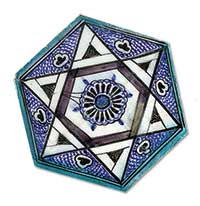
I first met Father Jacques in autumn 2012 when I was traveling as a journalist through an already war-torn Syria. He served Qaryatain’s Catholic parish while also belonging to the religious order of Mar Musa, which was founded in the early 1980s in a derelict early Christian monastery. This order is a special, even unique Christian community, since it is devoted to an encounter with Islam and to love for Muslims. The monks and nuns, while conscientiously holding to the Catholic Church’s precepts and rites, engage just as seriously with Islam and take part in Muslim traditions, including Ramadan. This may sound mad, even ludicrous: Christians who, in their own words, have fallen in love with Islam. And yet this Christian–Muslim love was a reality in Syria until just recently, and remains so still in the hearts of many Syrians. Through the work of their hands, the goodness of their hearts, and the prayers of their souls, the nuns and monks of Mar Musa created a place that to me seemed a utopia, a place where the eschatological reconciliation of all things was – well, perhaps not already fulfilled (they would not have claimed this), but still tangible in advance as a promise of the reconciliation to come.
This was the Mar Musa I came to know: a seventh-century stone monastery amid the overpowering solitude of the mountains of the Syrian desert, a place visited not only by Christians from all over the world but also by ever-increasing numbers of Muslims, who knocked at the door to meet their Christian brothers and sisters; to speak, sing, and be silent with them; and also, in a corner of the church kept free of images, to pray according to their Islamic custom.
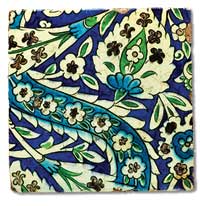
When I visited Father Jacques in 2012, his friend Paolo Dall’Oglio, the Italian Jesuit who had founded the Mar Musa community, had recently been expelled from the country. Father Paolo had been too outspoken in his criticism of the Assad government, which had responded to the Syrian people’s call for freedom and democracy – a call that had remained peaceful for nine months – with arrests and torture, with truncheons and assault rifles, and finally with horrific
massacres and even poison gas until the country descended into civil war. But Father Paolo had also confronted the leadership of the official Syrian churches, which remained silent about the government’s violence. He had attempted in vain to persuade Europe to support Syria’s democracy movement and had called in vain on the United Nations to impose a no-fly zone or at least send observers. He had warned in vain of a religious war if the secular and moderate groups were abandoned and foreign aid went only to the jihadists. He had tried in vain to break through the wall of our apathy. In the summer of 2013, the founder of the Mar Musa community secretly returned to Syria to help recover some Muslim friends who were in the hands of ISIS, and was himself abducted by its forces. There has been no trace of Father Paolo Dall’Oglio since July 28, 2013.
 Mar Musa monastery, 2008; the cable stretching across the valley to the building is to transport firewood.
Mar Musa monastery, 2008; the cable stretching across the valley to the building is to transport firewood.Photograph: Ninian D
Already a subscriber? Sign in
Try 3 months of unlimited access. Start your FREE TRIAL today. Cancel anytime.
Father Jacques, now responsible for the Mar Elian monastery in Dall’Oglio’s absence, is very different in character: not a gifted orator, not a man of charisma, not a passionate Italian, but rather, like so many Syrians I met, a proud, thoughtful, and extremely polite man, quite tall, with a broad face, his short hair still black. I did not get to know him well, of course; I attended Mass, which consisted of enchantingly beautiful singing as in all Eastern churches, and observed how warmly he chatted to the faithful and to local dignitaries at the subsequent lunch. After farewelling all the guests, he led me to his tiny room and placed a chair for me next to the narrow bed upon which he sat for the half-hour interview.
It was not only his words that amazed me – how fearlessly he criticized the government, and how openly he also spoke of the hardening in his own Christian community. What made an even more profound impression on me was his demeanor: I experienced him as a quiet, very conscientious, introspective, and ascetic servant of God who, now that God had given him the task of caring for the beleaguered Christians in Qaryatain and leading the monastic community, was carrying out this public duty with all his might. He spoke quietly and so slowly – often with his eyes closed – that it was as if he were consciously slowing down his pulse and using the interview as a time to rest between other, more strenuous commitments. Yet he chose his words with great care and articulated his thoughts in press-ready sentences. What he said was of such clarity and political incisiveness that I kept asking whether it might not be too dangerous to quote him verbatim. Then he opened his warm, dark eyes and nodded wearily – yes, he said, I could print everything, otherwise he would not have said it. The world had to learn what was happening in Syria.
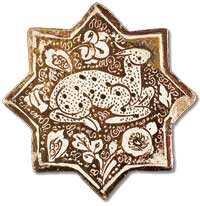
This weariness was perhaps my strongest impression of Father Jacques – it was the weariness of one who had not only realized but indeed had consented to the fact that he might never rest until the next life. It was, too, the weariness of a doctor or a firefighter who rations his energy when the emergency becomes overwhelming. And Father Jacques was indeed a doctor and a firefighter in the midst of the war, not only for the souls of those living in fear, but also for the bodies of the needy to whom he offered food, protection, clothes, accommodation, and, above all, compassion in his church, regardless of their religion. Many hundreds if not thousands of refugees, the vast majority of them Muslims, were given shelter at the monastery and provided for by the community of Mar Musa. And not only that: Father Jacques managed to maintain peace, including peace between the religions, at least in Qaryatain. It is chiefly thanks to him – the quiet, serious Father Jacques – that the different groups and militias, some allied with the government and others with the opposition, agreed to ban all heavy weapons from the town. And he, the priest who was critical of the official Syrian church, succeeded in persuading almost all the Christians in his parish to stay. “We Christians are a part of this country, even if the fundamentalists here and in Europe don’t like to hear it,” Father Jacques told me. “Arab culture is our culture!”
We Christians are a part of Syria. Arab culture is our culture!
He reacted with some bitterness to the calls of certain Western politicians to take in only Christian Arabs. The same West that had failed to lift a finger for the millions of Syrians of all faiths who had demonstrated peacefully for democracy and human rights, the same West that had devastated Iraq and supplied Assad with his poison gas, the same West that remained an ally of Saudi Arabia, the main sponsor of jihadism – this same West was now concerned about the Arab Christians? The very idea made him laugh, said Father Jacques, unsmilingly. He continued with his eyes closed: “With such irresponsible statements, these politicians add fuel to the religious hatred that threatens us Christians.”
Father Jacques’s responsibilities grew constantly, and he bore them without complaint. The monastic community’s foreign members had to leave Syria and take refuge in northern Iraq. The seven Syrian monks and nuns who remained divided themselves between the two monasteries of Mar Musa and Mar Elian. Since the battlefronts were constantly shifting, Qaryatain was sometimes ruled by the Syrian government and sometimes by opposition militias. The monks and nuns had to come to terms with both sides and, like their fellow citizens, endure government bombing attacks whenever the town was in the hands of the opposition. Things changed, however, as ISIS advanced ever deeper into the Syrian heartland. “The threat from ISIS, this cult of terrorists who present a ghastly image of Islam, has arrived in our region,” Father Jacques wrote to a French friend a few days before his abduction. “It is difficult to decide what we should do. Should we leave our homes? To us that seems very hard. The realization that we have been abandoned is dreadful – abandoned especially by the Christian world, which has decided to keep its distance so that the danger will stay far away. We mean nothing to them.”
 Photograph of Jacques Mourad, taken from a video created by ISIS.
Photograph of Jacques Mourad, taken from a video created by ISIS.
Already a subscriber? Sign in
Try 3 months of unlimited access. Start your FREE TRIAL today. Cancel anytime.
Just in these few lines of a hastily written email, two parts stand out that are characteristic of Father Jacques. The first one is the sentence beginning: “The threat from ISIS, this cult of terrorists who present a ghastly image of Islam ...” The second one concerns the Christian world: “We mean nothing to them.” He defended the other faith community while criticizing his own. Just as a group claiming to represent Islam and to be applying the requirements of the Quran was physically threatening him and his community directly, and just a few days before his abduction, Father Jacques still insisted that these terrorists were distorting the true face of Islam.
Now, I would disagree with any Muslim whose only response to the Islamic State is the worn-out protest that violence has nothing to do with Islam. But here was a Christian – and a priest at that – who when faced with the possibility of being expelled, humiliated, abducted, or killed by followers of another faith still insisted on justifying that same faith. Such a servant of God displays an inner greatness that I have only encountered in the lives of the saints.
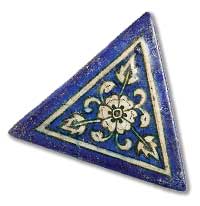
Someone like me cannot, and may not, defend Islam in this way. Love of one’s own – one’s own culture, one’s own country, and equally one’s own person – proves itself in self-criticism. The love of the other – of another person, another culture, and even another religion – can be far more effusive and unreserved. It is true that the prerequisite for love of the other is love of oneself. But one can only be in love with something, as Father Paolo and Father Jacques are in love with Islam, if it is the other. Self-love, on the other hand, if it is to avoid falling prey to narcissism, self-praise, or self-satisfaction, must be a struggling, doubting, and ever-questioning love. How true that is of Islam today! Any Muslim who does not struggle with it, doubt it, and question it critically does not love Islam.
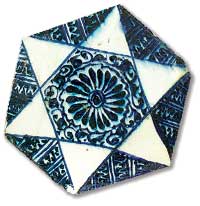
It’s not only the horrific news and the even more horrific pictures from Syria and Iraq, where the Quran is held aloft during every atrocity and Allahu akbar is called out at every beheading. In so many other countries in the Muslim world, Islam is invoked by state authorities, quasi-governmental institutions, theological schools, and rebel groups alike when they oppress their own people, disadvantage women, and persecute, drive out, or massacre those who think, live, or believe differently. Islam is invoked when women are stoned in Afghanistan, when entire school classes are murdered in Pakistan, when hundreds of girls are enslaved in Nigeria, when Christians are beheaded in Libya, when bloggers are shot in Bangladesh, when marketplaces are bombed in Somalia, when Sufis and musicians are murdered in Mali, when critics of the regime are crucified in Saudi Arabia, when the best contemporary literature is banned in Iran, when Shiites are oppressed in Bahrain, and when Sunnis and Shiites murder each other in Yemen.
We have been abandoned by the Christian world. We mean nothing to them.
To be sure, most Muslims reject terror, violence, and oppression. This is not just an empty talking point, but rather a reality I have experienced directly on my travels. Those who cannot take freedom for granted learn most poignantly to appreciate its value. All the mass uprisings in the Islamic world in recent years were uprisings for democracy and human rights. That includes not only the attempted (and mostly failed) revolutions in nearly all Arab countries, but also the protest movements in Turkey, Iran, and Pakistan, as well as the revolt at the ballot box in the last Indonesian presidential election. It is likewise instructive to note where the streams of Muslim refugees are headed in their hope to find better lives: it’s certainly not to religious dictatorships. Meanwhile, the reports that reach us from Mosul or Raqqa hardly testify to popular enthusiasm for the ISIS occupiers, but instead to panic and despair. Every significant theological authority in the Islamic world has rejected ISIS’s claim to speak for Islam, documenting in detail how its practices and ideology go against the Quran and the fundamental tenets of Islamic theology. Let us not forget either that those on the frontlines in the battle against the Islamic State are themselves Muslims – Kurds and Shiites, as well as Sunni tribes and the soldiers of the Iraqi army.
All of this needs to be said to puncture the fiction being promoted equally by Islamists and by Islam’s critics, both using identical words: that Islam is waging a war against the West. Rather, Islam is waging a war against itself. That is to say, the Islamic world is being shaken by an internal conflict whose effects on the political and ethnic cartography may well match those that resulted from the upheavals of World War I. The multiethnic, multireligious, and multicultural Orient whose magnificent literary productions from the Middle Ages I studied; the Orient that I learned to love during long stays in Cairo and Beirut, childhood summer holidays in Isfahan, and visits at the monastery of Mar Musa; the Orient that, although always endangered and never free of maladies, nevertheless remained a living reality: this Orient will cease to exist, just like the pre–World War I Europe which the German poet Stefan Zweig looked back on with nostalgia and grief in the 1920s.
 Mosaic roof in the Nabi Habeel Mosque, Syria Photograph by Tengku Mohd Yusof / Alamy
Mosaic roof in the Nabi Habeel Mosque, Syria Photograph by Tengku Mohd Yusof / Alamy
Already a subscriber? Sign in
Try 3 months of unlimited access. Start your FREE TRIAL today. Cancel anytime.
What happened? ISIS was not born just yesterday, nor did it start with the civil wars in Iraq and Syria. Much as its methods might meet with disapproval, its ideology, Wahhabism, is a movement whose influence extends to the furthest corners of the Islamic world today and which, in the form of Salafism, has become especially attractive to young people in Europe. The fact that the schoolbooks and curricula used by ISIS are 95 percent identical to those used in Saudi Arabia indicate that it’s not only in Iraq and in Syria that the world is starkly divided into “forbidden” and “permitted,” or where humanity is divided into believers and unbelievers. For decades, thanks to billions of dollars of sponsorship from the oil industry, a worldview has been promoted in mosques, in books, and on television that declares all who hold different beliefs to be heretics – reviling, terrorizing, slandering, and insulting them. Once it’s become a habit to systematically denigrate others day after day, it’s only consistent – how well we know this from our own German history! – to end up declaring their lives worthless too. That this religious fascism has even become conceivable, that ISIS finds so many fighters and even more sympathizers, that this organization has been able to overrun entire countries and capture cities of millions with minimal resistance – all this represents not the beginning, but rather the tentative endpoint of a long deterioration, especially a deterioration of the religious imagination.
The Quran is less a book than the score of a song that moves its Arab listeners with its music, onomatopoeia, and melodies.
I became a student of Middle Eastern Studies in 1988; my topics were the Quran and poetry. Any who study this subject in its classical form soon reach a point where they can no longer reconcile the past with the present. And they become hopelessly sentimental. Of course, the past was not only a peaceful and motley rainbow. As a philologist, however, I focused on the writings of mystics, philosophers, rhetoricians, and theologians. Like other students of this literature, I can only marvel at the originality, intellectual scope, aesthetic power, and sheer humanity we find in the spirituality of Ibn Arabi, the poetry of Rumi, the historiography of Ibn Khaldun, the poetic theology of Abd al-Qahir al-Jurjani, the philosophy of Averroës, the travel reports of Ibn Battuta, and indeed the tales of One Thousand and One Nights, which are worldly – yes, worldly and erotic, and incidentally feminist too – while yet being infused throughout with the spirit and language of the Quran. Admittedly, this great literature is not journalistic reporting, and no doubt the social reality of this advanced civilization, like the reality of any age, was much darker and more violent. Yet these literary witnesses tell us what was once conceivable, even self-evident, within Islam. None of this, nothing at all, is to be found in the religious culture of modern Islam – nothing that is even remotely comparable in depth or power of fascination to the writings I came across during my studies. And this is to say nothing of Islamic architecture, Islamic art, or Islamic musical culture; these no longer exist.
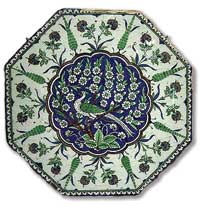
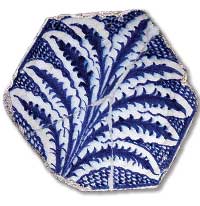
To give an illustration of this loss of creativity and freedom taken from my own field, literature: it was once thinkable, even self-evident, that the Quran should be approached as a poetic text, one to be understood using the tools and methods of poetry scholarship: that is, as a poem. It was thinkable, even self-evident, that to be a Muslim theologian also meant being a literary scholar and a connoisseur of poetry; in many cases, the theologian was himself a poet. Yet in our day my own teacher, Nasr Hamid Abu Zaid in Cairo, was charged with heresy, fired from his university post, and even forced to divorce his wife because he understood Quranic scholarship as a form of literary scholarship. Thus an approach to the Quran which had long been taken as a given and which, as Nasr Abu Zaid pointed out, was used by the most important scholars of classical Islamic theology, has today been defined as unthinkable. Anyone who approaches the Quran in this undoubtedly traditional way is persecuted, punished, and declared a heretic.
In reality, the Quran is poetry not just because the lines rhyme, but also because it speaks in disturbing and enigmatic images with multiple meanings; it is less a book than a recitation, the score of a song that moves its Arab listeners with its rhythms, onomatopoeia, and melodies. Islamic theology not only used to recognize the Quran’s aesthetic qualities but went even further, declaring its literary beauty to be the authenticating miracle of Islam. By contrast, today we can observe all over the Islamic world what happens when one ignores or fails to understand the linguistic structure of a text. The Quran is degraded to a how-to manual that can be word-searched for this or that catch phrase. The Quran’s literary power thus becomes political dynamite.
It’s often claimed that Islam must pass through the fire of enlightenment or that modernity must win out over tradition. But that seems simplistic considering that Islam’s past is so much more enlightened than its present and its traditional writings often appear more modern than its current theological discourse. After all, Islamic culture fascinated Goethe, Proust, Lessing, and Joyce – hardly an indication of a lack of enlightenment. In Islam’s books and monuments these writers saw something that we, who are so often brutally confronted by Islam’s present state, no longer can easily perceive. Perhaps the problem of Islam is not tradition, but rather the near-total break with tradition – Islam’s loss of cultural memory, its civilizational amnesia.
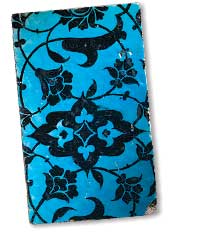
Modernization as experienced by each of the peoples of the Orient was imposed brutally from above, through colonialism and secular dictatorships. Iranian women, for example, did not let go of the headscarf gradually; instead, in 1936 the Shah sent his soldiers out into the streets to tear it from their heads by force. Unlike in Europe, where people experienced modernity (despite various setbacks and crimes) as a process of emancipation that spanned decades and centuries, in the Middle East modernization was largely an experience of violence. Modernity is thus linked not with freedom, but with exploitation and despotism.
Imagine an Italian president driving a car into Saint Peter’s Basilica, jumping onto the altar with his dirty boots, and striking the Pope in the face with his whip – then you will have a rough idea of what it meant when, in 1928, Reza Shah marched through the holy shrine of Qom, Iran, in his riding boots and responded to the imam’s request to take off his shoes like any other believer by striking him in the face with his whip. You would find comparable events and key moments in other countries across the Middle East, countries that did not detach themselves slowly from the past but rather sought to raze the past and erase it from memory.
Surely, one might have thought, the religious fundamentalists who gained influence throughout the Islamic world after the failure of nationalism would value their own culture. Yet the opposite was the case: by seeking to return to a legendary state of original purity, they not only neglected Islamic tradition but zealously fought against it. ISIS’s acts of iconoclasm will be surprising only to those unaware that in Saudi Arabia there are virtually no ancient relics left. In Mecca, the Wahhabis destroyed the graves and mosques of the Prophet’s closest kin and even his house of birth. The historic mosque of the Prophet in Medina has been replaced with a gigantic new construction, and on the spot where, until a few years ago, the house still stood that was home to Mohammed and his wife Khadija, you will now find public toilets.
 Bookcase in the Umayyad Mosque, Damascus.
Bookcase in the Umayyad Mosque, Damascus.Photograph by twiga_swala, Dan
Already a subscriber? Sign in
Try 3 months of unlimited access. Start your FREE TRIAL today. Cancel anytime.
Aside from the Quran, my studies focused mainly on Islamic mysticism, that is, Sufism. Mysticism may sound marginal and esoteric, a kind of underground culture. In the context of Islam, nothing could be further from the truth. Well into the twentieth century, Sufism formed the basis of popular religion almost everywhere in the Islamic world; in Asian Islam, it still does. At the same time, the spirit of mysticism pervaded Islamic high culture, especially poetry, visual art, and architecture. As the most common form of religious practice, Sufism served as the ethical and aesthetic counterweight to the orthodoxy of the legal scholars. Emphasizing God’s compassion above all and finding it behind every letter of the Quran, Sufism always sought beauty in religion and acknowledged the truth in other forms of faith, expressly adopting the Christian commandment to love one’s enemies. In this way, Sufism infused Islamic societies with values, stories, and sounds that literalistic forms of devotion could never have supplied. As a lived Islam, Sufism did not negate legal Islam but rather broadened it, rendering its everyday form gentler, more ambivalent, more porous, more tolerant, and especially – through music, dance and poetry – more open to sensual experience.
Very little of this has survived. Wherever the Islamists gained a foothold, starting in nineteenth-century Arabia and continuing up to their recent seizure of power in Mali, they have begun by banning Sufi holy days, prohibiting the mystical writings, destroying the graves of the saints, and cutting off the long hair of the Sufi leaders (or simply killing them). And it hasn’t been just the Islamists. The reformers and religious modernizers of the nineteenth and early twentieth centuries also viewed the traditions and customs of popular Islam as backward and antiquated. Given their failure to appreciate Sufi literature, it fell to Western scholars such as the Orientalist Annemarie Schimmel, winner of the 1995 Peace Prize, to edit Sufi manuscripts and save them from destruction. Even today, only a handful of Muslim intellectuals engage with the riches found in their own tradition. The historic city centers all over the Islamic world – damaged, neglected, strewn with rubbish, and filled with ruined monuments – symbolically represent the decline of the Islamic spirit.
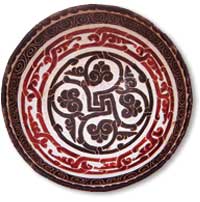
So does the largest shopping mall in the world, built in Mecca right next to the Kaaba. You have to see the photos to believe it: the Kaaba, the holiest place in Islam, this plain yet magnificent edifice, is literally overshadowed by Gucci and Apple. Perhaps we should have paid less attention to the Islam of our grand theorists, and more to the Islam of our grandmothers.
The Kaaba, the holiest place in Islam, this plain yet magnificent edifice, is literally overshadowed by Gucci and Apple.
To be sure, in some countries historic buildings and mosques are being restored, but this has happened only after Western art historians or westernized Muslims like me recognized the value of the tradition. Unfortunately we arrived at the scene a century too late, when the buildings had already crumbled, the architectural techniques had been forgotten, and the books had been erased from memory. Yet we believed that at least there would be time for thorough study of these things. Instead, I now feel much like an archaeologist in a war zone, hastily and unmethodically gathering up relics so that later generations will at least be able to view them in museums. Certainly Muslim countries are still producing outstanding works of art, as is evident at biennales, film festivals, and here at the Frankfurt Book Fair. But this culture has precious little to do with Islam. There is no longer an Islamic culture, at least none of quality. What we now find flying around us and falling on our heads is the wreckage of a massive intellectual implosion.
Already a subscriber? Sign in
Try 3 months of unlimited access. Start your FREE TRIAL today. Cancel anytime.
Is there any hope? There is hope until the last breath – this is what Father Paolo Dall’Oglio, founder of Mar Musa, teaches us. Hope is the central motif in his writings. The day after Father Jacques, Dall’Oglio’s pupil and deputy, was abducted, the Muslims of Qaryatain flooded into the church unasked in order to pray for him. That must surely give us hope that love crosses the boundaries between religions, ethnicities, and cultures. The shock created by the news and images of ISIS is immense and has released opposing forces. At long last, within Islamic orthodoxy there is growing resistance to violence in the name of religion. In addition, over the last few years we’ve witnessed the emergence of a new mode of religious thought, perhaps less in the Arabian heartland of Islam than on its peripheries in Asia, South Africa, Iran, Turkey, and (not least) among Muslims in the West. This process is similar to Europe’s re-creation of itself after the two World Wars.
The day after Father Jacques was abducted, the Muslims of Qaryatain flooded into the church to pray for him.
Perhaps I should mention at this juncture Europe’s project of unification, which – despite the frivolousness, superficiality, and even open despisal shown toward it by our politicians and by us as a society – remains the most valuable political achievement of this continent. How often on my travels people mention Europe to me as a model, almost a utopia. Anyone who has forgotten why there needs to be a Europe should look at the gaunt, exhausted, frightened faces of the refugees who have left everything behind, given up everything, and risked their lives for the promise that Europe still represents.
 The Sayyidah Zainab Mosque, Syria
The Sayyidah Zainab Mosque, Syria
Already a subscriber? Sign in
Try 3 months of unlimited access. Start your FREE TRIAL today. Cancel anytime.
That brings me back to the second of Father Jacques’s statements that I found remarkable, namely his comment about the Christian world’s attitude to him and his Syrian neighbors: “We mean nothing to them.” As a Muslim, it is not my place to reproach the Christians of the world for their unconcern, whether toward the Syrian or Iraqi peoples in general, or toward their brothers and sisters in the faith in particular. And yet such reproaches are hard to suppress when I see the public indifference in our country to the truly apocalyptic disaster playing out in the Middle East, one which we try to keep at bay with barbed wire fences, warships, bogeymen, and mental blinkers. Only three hours’ flight from Frankfurt, entire ethnic groups are being exterminated or expelled, girls are being enslaved, many of humanity’s most important cultural monuments are being blown up by barbarians, and cultures are disappearing, taking with them an ancient ethnic, religious, and linguistic diversity that, unlike in Europe, had still partly persisted into the twenty-first century. Yet we do not band together and stand up until this war strikes us here, as it did in Paris, or when the people fleeing from this war come knocking at our gates.
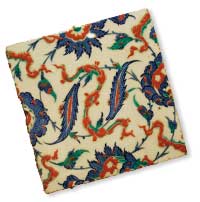
It is a good thing that – unlike after September 11, 2001 – our societies have opposed terror with freedom. It is exhilarating to see how so many people in Europe, especially Germany, are supporting refugees. But too often, this protest and this solidarity remain apolitical. We are not having a broad debate in our society about the causes of terror and of the movement of refugees, or about how our own policies may be exacerbating the disaster taking place near our borders. We do not ask why our closest partner in the Middle East is Saudi Arabia, of all countries. We do not learn from our mistakes when we roll out the red carpet for a dictator like General el-Sisi. Or we learn the wrong lessons, such as when we conclude from the disastrous wars in Iraq and Libya that it is best to stay uninvolved even when a genocide is underway. We still have no idea how to prevent the murder being committed by the Syrian regime against its own people for the last four years. Similarly, we have seemingly come to terms with the existence of a new religious fascism that controls a territory roughly as big as Great Britain, extending from the Iranian border almost to the Mediterranean.
Clearly there are no simple answers to such questions as how to liberate a city of millions like Mosul – but we do not even pose the question seriously. Yet for the community of nations, an organization like ISIS with its estimated thirty thousand fighters is not invincible – we must not allow it to be. “Today they are with us,” said the Catholic bishop of Mosul, Yohanna Petros Mouche, when he begged for help from the West and other global powers to drive ISIS out of Iraq. “Today they are with us. Tomorrow they will be with you.”
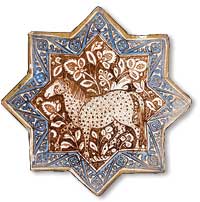
I’d rather not imagine what more will have to happen before we heed the bishop of Mosul’s warning. After all, it is part of ISIS’s propagandistic logic to create ever higher levels of horror so that its images penetrate our consciousness. As soon as we were no longer outraged to see individual Christian hostages saying the rosary before being beheaded, ISIS started beheading entire groups of Christians. When we banished the decapitations from our screens, ISIS burnt the artwork at the National Museum in Mosul. Once we had grown used to the sight of smashed statues, ISIS began leveling whole ruined cities like Nimrod and Nineveh. When the expulsions of Yazidis had ceased to interest us, the news of mass rapes briefly jolted us from our slumber. When we thought the terrors were limited to Iraq and Syria, snuff videos reached us from Libya and Egypt. After we had become accustomed to the beheadings of some and the crucifixions of others, the victims were first beheaded and then crucified, as recently occurred in Libya. Palmyra is not being blown up all at once, but is being destroyed edifice by edifice at intervals of several weeks so that each time there will be a fresh news item.
This will not stop. ISIS will keep escalating the horror until we see, hear, and feel in our everyday European lives that this horror will not stop by itself. Paris will only have been the beginning, and the decapitation in Lyons will not be the last. The longer we wait, the fewer options remain. In other words, it is already far too late.
Already a subscriber? Sign in
Try 3 months of unlimited access. Start your FREE TRIAL today. Cancel anytime.
Can the winner of a peace prize call for war? I am not calling for war. I am simply pointing out that there is a war – and that we too, as its close neighbors, must respond to it, possibly by military means, yes, but above all with far more determination than has so far been shown either by diplomats or by civil society. For this war can no longer be ended only in Syria and Iraq. It can be ended only by the powers behind the warring armies and militias: Iran, Turkey, the Gulf states, Russia, and (not least) the West. And only when our societies no longer accept the madness will governments make a move. Whatever we do at this point, we will probably make mistakes. But our greatest mistake would be to do nothing or too little against the mass murder being carried out by ISIS and the Assad regime at Europe’s doorstep.

“I have just returned from Aleppo,” Father Jacques continued in the email he wrote a few days before his abduction on May 21, “this city that sleeps by the river of pride, which lies at the center of the Orient. It is now like a woman who is consumed by cancer. Everyone is fleeing from Aleppo, especially the poor Christians. Yet these massacres don’t only harm the Christians; they harm the entire Syrian people. Our vocation is hard to live out, especially in these days after the disappearance of Father Paolo, the twenty-first century’s preeminent teacher and initiator of dialogue. Right now, the kind of dialogue we’re experiencing is our shared suffering as a community. We are sorrowing in this unjust world, which bears a share of the responsibility for the victims of the war, this world of the dollar and the euro, which cares only for its own citizens, its own wealth, and its own safety while the rest of the world dies of hunger, sickness, and war. It seems that its only aim is to find regions where it can wage wars and further increase its sales of armaments and airplanes. How do these governments justify themselves when they could end the massacres but do nothing, nothing? I do not fear for my faith, but I fear for the world. The question we ask ourselves is this: do we have the right to live or not? The answer has already been given, for this war is a clear answer, as clear as the sun’s light. So the true dialogue we are living today is the dialogue of compassion. Courage, my dear, I am with you and hold you tight, Jacques.”
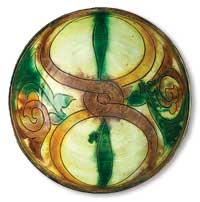
On July 28, 2015, two months after the abduction of Father Jacques, ISIS captured the small town of Qaryatain. The majority of the population managed to escape at the last moment, but two hundred Christians were kidnapped. A month later, on August 21, the monastery of Mar Elian was destroyed by bulldozers. From the pictures that ISIS posted online, it seems that not one of the 1,700-year-old stones was left standing. Another two weeks later, on September 3, an ISIS-affiliated website posted photos showing some of the Christians from Qaryatain sitting in the front rows of a school auditorium or event hall, their heads shaven, some of them barely more than skin and bones, with empty gazes, all of them marked by their captivity. Father Jacques can also be identified on the photos, wearing plain clothes, likewise gaunt and with a shaved head, the distress clearly visible in his eyes. He is covering his mouth with his hand, as if unwilling to believe what he is seeing. On the stage of the hall one sees a broad-shouldered, long-bearded man in combat gear signing a contract. It is what is known as a dhimmi contract, which subjects Christians to Muslim rule. Christians are forbidden to build churches or monasteries or to carry a cross or Bible with them. Their priests cannot wear clerical attire. Muslims are not allowed to hear the prayers of the Christians, read their writings, or enter their churches. Christians cannot bear arms and must submit unconditionally to the directives of the Islamic State. They must bow their heads, endure every injustice without complaint, and pay a special poll tax, the jizya, if they are to live. It churns the stomach to read this contract: it blatantly divides God’s creatures into first-class and second-class humans, and leaves no doubt that there are also humans of a third class whose lives are worth even less.
It is a calm, but utterly depressed and helpless gaze we see in Father Jacques’s face on the photo as he covers his mouth with his hand. He had reckoned with his own martyrdom. But to see his parish taken hostage – the children he christened, the lovers he married, the elderly to whom he promised the final sacramental unction – must be enough to make him lose his mind, to make even a man so thoughtful, so inwardly strong, and so God-loving as Father Jacques lose his mind. After all, it was on his account that his fellow hostages had stayed in Qaryatain rather than fleeing Syria like so many other Christians. Father Jacques no doubt believes that he has incurred guilt, but I know this much: God will judge him differently.



 The Mar Elian monastery before, during, and after its destruction by ISIS forces in August 2015. These stills were taken from an ISIS video.
The Mar Elian monastery before, during, and after its destruction by ISIS forces in August 2015. These stills were taken from an ISIS video.
Already a subscriber? Sign in
Try 3 months of unlimited access. Start your FREE TRIAL today. Cancel anytime.

Is there hope? Yes, there is hope. There is always hope. I had already written this speech when I received the news that Father Jacques Mourad is free. Citizens of the town of Qaryatain helped to liberate him from jail, then disguised him and brought him out of ISIS territory with the help of Bedouins. He has now returned to his brothers and sisters in the Mar Musa community. Obviously, a number of people were involved in the rescue operation, all of them Muslim; each one of them risked their life for a Christian priest. Love has prevailed over the borders of religions, ethnicities, and culture.
And yet, as magnificent as this news is – indeed, as wondrous as it is in the very sense of the word – our worry must nevertheless outweigh our joy, especially our worry for Father Jacques himself. Indeed, the lives of the two hundred other Christians in Qaryatain are likely now in even greater danger than before his liberation. And there is still no trace of his teacher, Father Paolo, the founder of the Christian community that loves Islam. But there is hope until our last breath.
The winner of a peace prize should not call for war. But he can call to prayer.The winner of a peace prize should not call for war. But he can call to prayer. Ladies and gentlemen, I would like to make an unusual request – though it is not really so unusual in a church. I would like you to refrain from applauding at the end of my speech and instead pray for Father Paolo and the two hundred kidnapped Christians of Qaryatain, for the children baptized by Father Jacques, for the lovers he married, and for the elderly to whom he promised the sacrament of anointing. And if you are not religious, let your wishes be with those who have been abducted, and with Father Jacques, who must struggle with the fact that only he was freed. For what are prayers but wishes addressed to God? I believe in wishes and believe that they have an effect on our world, with or without God. Without wishes, humanity would never have laid the stones on top of one another that it so recklessly destroys in its wars. And so I ask you, ladies and gentlemen, to pray for Jacques Mourad, pray for Paolo Dall’Oglio, pray for the abducted Christians of Qaryatain, pray or wish for the liberation of all hostages and the freedom of Syria and Iraq. You are welcome to stand up too, so that we can oppose the snuff videos of the terrorists by presenting a picture of our fraternity.
In December 2015, Father Jacques Mourad, who had traveled to Europe after his escape from ISIS, announced he would soon return to Syria: “I have no fear, God will hold his hand over me.”
Already a subscriber? Sign in
Try 3 months of unlimited access. Start your FREE TRIAL today. Cancel anytime.

“An intolerable affront” was how one German newspaper described Navid Kermani’s gesture in closing his October 2015 speech (above) with a call for his hearers to join him in praying for ISIS’s Christian victims. As Kermani, a Muslim, lifted his hands in prayer, his one thousand listeners – some, no doubt, to their own surprise – rose to join him. In the media furor that followed, prominent commentators accused Kermani of manipulating his audience. Some pundits even linked Kermani’s “politicized” prayer to the theocratic ideology of ISIS.
Though many others rose to Kermani’s defense, it was a telling moment. Will it take Muslim voices like Kermani’s to remind the post-Christian West of its own spiritual roots? Surely the answer to ISIS’s evil is not a God-free public square, but rather the same love that inspired both Jacques Mourad and his Muslim neighbors – a love born of faith in a power stronger than terrorism.
 Navid Kermani leads his audience in prayer for Iraq and Syria. Photograph © Arne Dedert, epa/dpa
Navid Kermani leads his audience in prayer for Iraq and Syria. Photograph © Arne Dedert, epa/dpa
Already a subscriber? Sign in
Try 3 months of unlimited access. Start your FREE TRIAL today. Cancel anytime.


































Phil Goutell
Thank you for passing this talk along. It makes me aware of how little I know of this history of middle eastern countries -- their history, not the history from our selective studies of them. It leads to a better understanding, and the understanding that we can live with each other, in harmony and respect, if we are bold enough to try.
Sara Wagasky
I am very thankful to read this clarification of reality - it has been horrifying to see the often loudest voice coming from the christian church being one of pure evil that lends support to Assad's in truth GENOCIDE of Syria.
Mervyn Maciel
I just wanted to say how much I enjoyed reading this thought-provoking speech. I admire the efforts being made by Father Jacques Mourad and others to promote and maintain Christian-Muslim. relations. One cannot but admire his faith and courage in staying behind besides being earlier kidnapped. It is so sad to hear that the Jesuit priest, Fr. Paolo Dall'Oglio with whom Fr. Jacques had worked, was also kidnapped and later killed. While I can understand Fr. Jacques frustration when he says, "We have been abandoned by the Christian world--we mean nothing to them", I would like to assure him that many ordinary Christians are doing a lot to alleviate the plight of the suffering people in Syria and other affected Middle East countries. The Catholic charity (Aid to the Church in Need) with whom I've been a volunteer worker for over twenty years, has provided substantial aid, and continues to assist the suffering people in Syria and other parts of the Middle East. Our staff have visited Syria, Lebanon and Iraq and are in regular touch with our contacts there. More importantly, the suffering people of the Middle East - be they Christians or Muslims, are prayed for daily after the midday Angelus at our Sutton Head offices. In this way, we remain in solidarity with our suffering brothers and sisters.